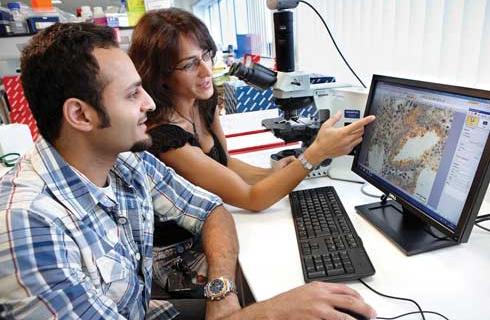国际学生入学条件
A GPA of 3.0 or better in the last four semesters or approximately 60 semester credits (or the equivalent in quarter credits) of work as an undergraduate;
All international applicants are required to submit one transcript or academic record from each institution of higher education attended, including any study abroad or exchange programs, summer programs, and non-degree work and extension programs. Applicants may submit unofficial copies of transcripts while applying for admission. However, admitted students are required to submit official transcripts in order to enroll at UHM. Official transcripts or academic records must be sent to Graduate Division Student Services directly from the issuing institution(s), or in sealed institutional envelopes if submitted with the application.
A completed Graduate Admissions Application
A completed Public Health application (available as a download on the Admissions page)
Statement of Objectives
Three (3) letters of recommendation, including the letter of recommendation form** (form available as a download on the Admissions page)
$100 application fee
A transcript from each post-secondary institution attended
The minimum acceptable TOEFL score for master’s degree applicants is 550 (213 for the computer-based test, 79-80 for the Internet-based test)
An IELTS overall score of 6 or higher is required for master's degree applicants
展开
IDP—雅思考试联合主办方

雅思考试总分
6.0
- 雅思总分:6
- 托福网考总分:79
- 托福笔试总分:550
- 其他语言考试:NA
CRICOS代码:
申请截止日期: 请与IDP联系 以获取详细信息。
课程简介
Epidemiology is the study of the distributions and determinants of health-related events/outcomes in populations. A basic focus of epidemiology is to investigate the distribution of diseases in different populations. Determining the prevalence and risk factors associated with these events/disease outcomes, as well as measuring the magnitude of such occurrences, is the scientific backbone of public health. An essential part of epidemiological investigation involves the utilization of epidemiologic and biostatistical methods and appropriate research study design to evaluate the effectiveness of disease control measures.<br><br>Students enrolled in the epidemiology specialization are required to take advanced level training in chronic and infectious disease epidemiology, advanced biostatistics, and research design. There is opportunity for students to choose from epidemiology electives in the following areas: infectious diseases (e.g. dengue virus, malaria, and HIV/AIDS), nutrition, neurodegenerative disorders (e.g. Parkinson's and Alzheimers), non-communicable diseases (e.g. diabetes and cardiovascular diseases), obesity, and cancer. Course work in specialized statistical methods and computer applications is also available. Students participate in on-going epidemiological research programs throughout the UH Mnoa system or community during their field practicum assignment.
展开







 预科
预科 奖学金
奖学金 实习机会
实习机会 在校学习
在校学习 跨境学习
跨境学习 校园授课-线上开始
校园授课-线上开始 在线/远程学习
在线/远程学习













 布鲁克大学
布鲁克大学

 多伦多都会大学
多伦多都会大学

 渥太华大学
渥太华大学

 麦吉尔大学继续教育学院
麦吉尔大学继续教育学院

 西蒙菲莎大学
西蒙菲莎大学

 卡尔加里大学
卡尔加里大学









 美国
美国
